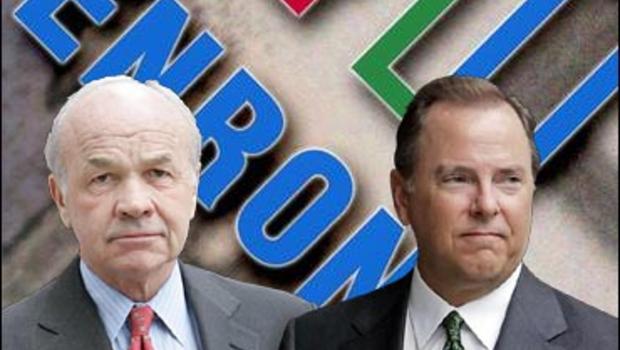 In a strong indication that he believes that the matter raises important appellate issues, U.S. District Judge Sim Lake issued a 22 page opinion late last week in the criminal case of former key Enron executives Ken Lay and Jeff Skilling expanding on the reasons for his ruling during the trial denying Lay and Skilling’s request that Judge Lake grant defense immunity to a half-dozen or so former Enron executives who Lay and Skilling believe would have provided exculpatory testimony for the defendants.
In a strong indication that he believes that the matter raises important appellate issues, U.S. District Judge Sim Lake issued a 22 page opinion late last week in the criminal case of former key Enron executives Ken Lay and Jeff Skilling expanding on the reasons for his ruling during the trial denying Lay and Skilling’s request that Judge Lake grant defense immunity to a half-dozen or so former Enron executives who Lay and Skilling believe would have provided exculpatory testimony for the defendants.
Lay and Skilling contend that the Enron Task Force used the threat of indictment against those former executives and dozens of other former Enron executives to induce the witnesses to assert the Fifth Amendment against self-incrimination rather than provide exculpatory testimony for Lay and Skilling.
The Task Force’s tactic of icing favorable witnesses for Lay and Skilling has been swirling around the case from the beginning. Lay and Skilling raised the issue prior to trial in regard to the Enron Task Force’s alleged intimidation of witnesses.
Then, Lay and Skilling raised the issue again during the trial as the defendants struggled to corroborate their testimony that key Task Force witnesses Ben Glisan and Andrew Fastow were lying when they testified that they had cautioned Lay and Skilling about Enron’s shaky financial condition at various times when Lay and Skilling were making positive statements to the market regarding the company’s finances.
In a key part of the ruling, Judge Lake explains his reasoning for denying Lay and Skilling’s request for the Court to grant defense immunity to the proposed witnesses:
The testimony that defendants expect the proposed witnesses would provide may be relevant and exculpatory, but it falls far short of being essential exculpatory evidence for the simple reason that defendants do not — and cannot — argue that these are the only witnesses capable of providing exculpatory evidence on these issues.
When defendants filed their motion to immunize the proposed witnesses both defendants had testified and their testimony contradicted the government’s evidence on these issues. At best, the anticipated testimony of [the witnesses] would be cumulative of the testimony of defendants and of other evidence presented by defendants. Accordingly, the court concludes that the defendants have failed to establish that the testimony that defendants seek to immunize would constitute essential exculpatory evidence.
This reasoning seems oddly superficial. Not only does it fail to address the fact that the Task Force’s witness-icing strategy allowed the prosecution to use hearsay statements from alleged co-conspirators against the defendants, the reasoning ignores the important impact that corroborating testimony has in a criminal trial.
Just as prosecution witnesses testifying under draconian plea deals have a powerful incentive to testify favorably for the prosecution, defendants asserting their innocence have a similar incentive to testify consistent with that position.
Juries intuitively understand this dynamic, and thus often discount such testimony while placing more weight on the testimony of corroborating witnesses who are not subject to those pressures. That Judge Lake’s opinion does not address that important impact of the Task Force’s witness-icing strategy will almost certainly be a key point on the appeal of this issue.
By the way, the same prosecution witness-icing strategy that was used in Lay-Skilling case is already an issue in the Nigerian Barge appeal. Inasmuch as a number of the convictions in the barge appeal already appear to be unraveling, the Fifth Circuit may even issue a ruling on the issue before the Lay-Skilling appeal arrives at the Fifth Circuit’s doorstep.

Um, would you want Lou Pai testifying for you?
How could the judge claim the absent witnesses testimony wasn’t essential? No one outside the jury knows what the jury takes into account when making their decision; for all we know, testimony from the absent witnesses would have tipped the decision in Lay and Skilling’s favor. Also, we can infer that the jury didn’t believe Lay and Skilling when they testified. Would the jury have done the same if Lay and Skilling were able to present witnesses who corroborated their testimony?